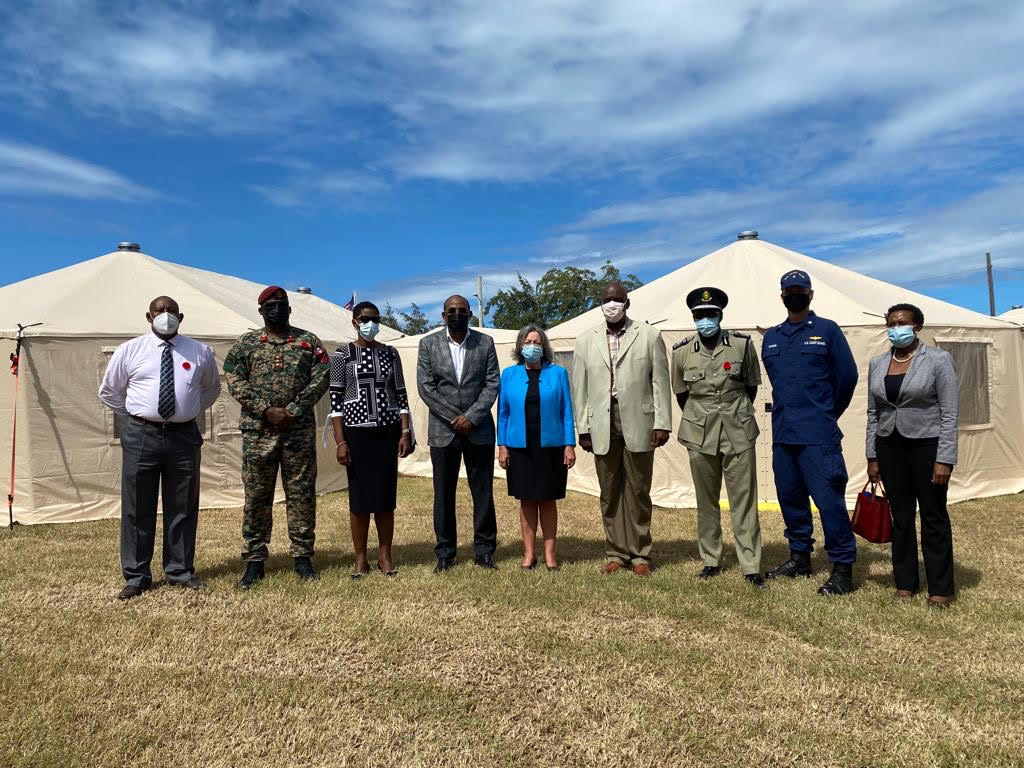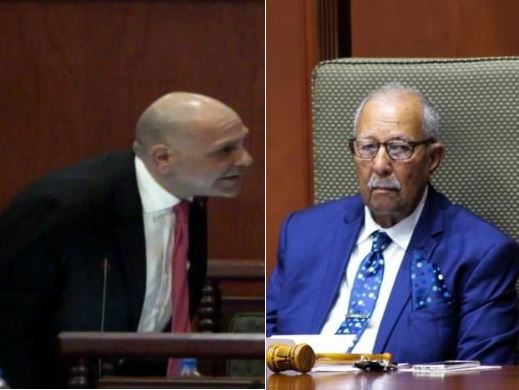The use of the death penalty has been a controversial topic for many years, and the recent call by a section of the TT Business Community for the resumption of hanging in Trinidad and Tobago has sparked widespread debate and concern.
We, as a society, must reject this call for the use of the death penalty as a means of promoting justice.
The death penalty is a cruel, inhumane, and ineffective form of punishment that has no place in a civilised society such as our own!
Leela Ramdeen, GCL’s Chair, says: “There is no evidence that the death penalty has any unique deterrent effect on serious crime. Research on this matter has revealed that the certainty of being caught, arrested and convicted within a reasonable time are more likely to act as a deterrent. Frank Friel, Former Head of Organized Crime Homicide Task Force, Philadelphia, rightly says: ‘The death penalty does little to prevent crime. It’s the fear of apprehension and the likely prospect of swift and certain punishment that provides the largest deterrent to crime.’ I recall that at the opening of the Law Term on 16 September 2015, TT’s Chief Justice, Mr Justice Ivor Archie O.R.T.T., said: “… Common sense tells me that by itself the death penalty is not the solution. Apart from the dubiousness of its value as a deterrent.”
The last time the death penalty was carried out in Trinidad and Tobago was in 1999. Crime statistics from 1999 going forward show an increase in violent crime (namely, murders) in Trinidad and Tobago. It is plain to see that the evidence only highlights its ineffectiveness.
The Privy Council ruled in Pratt and Morgan (1993), that a period of more than five years’ delay in carrying out a death sentence after conviction, constitutes cruel and inhuman punishment. Since then, in a number of cases, the Privy Council has raised the bar higher and higher, making it virtually impossible to carry out the death penalty in our region.
There are more than 1,200 persons waiting on Remand in TT for their murder trials. And remember, the death penalty does not address the increased spate of robberies, burglaries, home invasions and other violent crimes that do not result in murder.
GCL looks forward to the outcome of the Caricom symposium titled: Violence as a Public Health issue: The crime challenge, scheduled to take place in TT on Monday 17 and Tues 18 April, 2023. GCL agrees with the view expressed by Dr Amery Browne, TT’s Minister of Foreign and Caricom Affairs, that this symposium is an important step toward finding solutions to address crime on all fronts in the region – solutions, he says, that include “evidence-based strategies and interventions that involve the widest range of stakeholders in our societies.”
The causes of crime are complex and multi-faceted. Inter alia, they include poverty, social exclusion, corruption, deficiencies in our judicial and education systems, and in other key institutions in TT, the breakdown of the family, male underachievement, the prevalence of drugs, guns, gangs, and so on. In the face of these social ills, TT, and indeed, our Caricom neighbours, must ensure that our approach to crime prevention and crime reduction is multi-faceted and coordinated.
There is an urgent need for a robust, comprehensive, data-driven crime plan that includes evidence-based initiatives that address the root causes of crime and provide opportunities for individuals to turn their lives around or never resort to interacting with criminal elements or turning to crime in the first place.
Khaleem Ali, GCL’s Executive Member, says: “The focus for approaching crime and violence in the Caribbean should be on retooling and adopting more modern approaches to policing, crime fighting and other deterrents with emphasis on: proper border control to limit the chances of drugs and guns from entering our current porous borders, and cleaning up the judicial backlog to promote meaningful justice whereby persons are actually caught, convicted and rehabilitated. Holding a “big stick” over the criminal element does NOTHING to actually instill trust in the minds of citizens when our detection rate remains abysmally low. It is a mere band-aid which cannot begin to control the blood flow. Furthermore, the death penalty has been shown to disproportionately affect marginalised communities and those without access to effective legal representation, namely impoverished persons. This is unacceptable and goes against the very principles of justice and fairness.”
As a society, we must prioritise the rehabilitation and reintegration of individuals who have committed crimes, rather than resorting to the barbaric practice of execution to deter it.
We must invest in our justice system to ensure that it is fair and equitable for all. We must focus on the root causes of crime. Only then can we truly address the issues that encourage and foster a culture of criminality.
The Greater Caribbean for Life rejects any call made to utilise the death penalty and calls on the government of Trinidad and Tobago to direct its attention to evidence-based, data-driven solutions to effectively combat crime and balance it with the interests of justice.
Greater Caribbean for Life (GCL) is an independent, not-for-profit civil society organisation, incorporated in 2014. Our entity is composed by 70 members (individuals and organisation) from 18 countries of the Caribbean.
GCL’s main objective is to campaign for and work towards the permanent abolition of the death penalty in the Greater Caribbean and to support Caribbean abolitionist activists and organizations in this region.




















3 responses to “Group rejects any call made to utilise the death penalty”
Wanton killings is inhumane on any level. However, the Caribbean region has been blighted by wanton and unjustified killings for decades.
If there was a referendum on the issue, I would vote in favour: individuals who take a life should be prepared to lose his or her own. Once a life is taken there’s no return, which often leaves family members to live with the grief of the death of their love one whilst the murderer languishing in prison at tax payers expense.
Absolute Rubbish
Who cares if the Death Penalty deters crime or not? We just want the convicted murderer to meet the same fate as the unfortunate victim.
Hang them high!!!
So the stats show 1999 was the last time the death penalty was carried out and the there is an increase in violent crimes (murder). This does not speak to the ineffectiveness of the death penalty but the lack of. The last time I checked the way to judge the effectiveness of such a program would be to compare how often person are executed to crimes of this nature. According to what is stated above during the period of where there is no execution, the protocols that are being put forward as the only way to curb crime has been in effect. So if got the past 23 years offenders are being arrested prosecuted gone to prison and yet there is an increase in crimes. I would believe these protocols would get a failing grade. The author speaks of a multifaceted approach but yet seeks to limit the conversation to ineffective methods. One thing is for certain there are no repeat offenders once the death penalty is carried out.